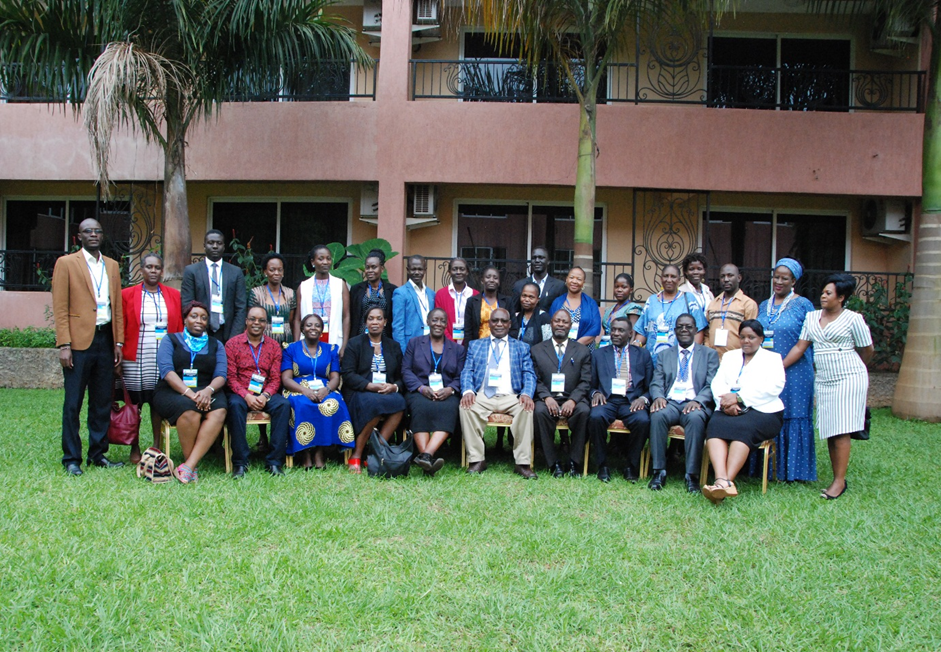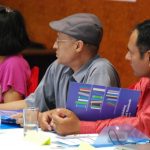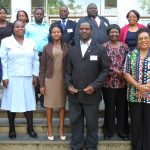
Strong membership and long-term plan help sustainability for Uganda’s library network
National library consortia play a pivotal role in the research and knowledge systems of many countries, ensuring that universities and research institutions have access to the information they need. INASP worked with national library consortia and equivalent bodies under the Strengthening Research & Knowledge Systems programme to strengthen their organizational capacity and effectiveness.
After many years working with INASP, Uganda’s library consortium has transitioned to a direct relationship with international publishers in negotiating and liaising to provide access to scholarly research for institutions across Uganda. Jesca Karungi, Chairperson of Consortium of Uganda University Libraries (CUUL) reflects on what CUUL has been working on this year, and the plans they have for the future.
One of our key strengths is the consistency in memberships of CUUL and this is something we have continued to see since the handover. Our members are devoted, and they are willing to serve CUUL. We take this very positively. As a result of contribution of some of our members, we could save some funds which will be helpful for future CUUL activities.
We consider 53 paid up memberships with four new member institutions as well as negotiation and subscription to 2018 e-resources as our biggest achievements so far after the handover of the management.
We are delighted to be able to deal with publishers directly. There is no doubt that we have gained experience and we are now more confident in managing our subscriptions.
Strengthening income streams
Since the handover we have been working towards increasing CUUL income for better service delivery through strengthening the existing income streams such as through recruiting new members and retaining the old ones. We are also working towards securing CUUL funds. Recently, we have also submitted a grant proposal to World Bank. In May, we carried out financial management training for the CUUL Executive Committee and the Functional Committees. Also, we are lobbying our government for e-resources subscription support.
Another important ongoing activity is developing advocacy capacity. Since we were part of the organizers of SCANUL ECS (Standing Conference of African National and University Libraries in Eastern, Central and Southern Africa and SCESCAL, a regional forum for library and information associations in Africa, we used this opportunity to advocate for its activities and launched our Information Literacy Handbook. From March to June 2018, we have demonstrated CUUL services to potential members at ISBAT University, Planning Authority, Entebbe International University, Infectious Diseases Institute to mention few. As per our plan, we are also training our committee members on advocacy skills in September 2018.
The other major activity is building capacity of CUUL leadership to deliver services by reviewing the committee’s terms of reference and the members. CUUL is also developing a monitoring and evaluation tool for CUUL activities work through its Monitoring and Evaluation Functional Committee. Moreover, we are in a process of expanding collaboration with sister institutions like the Research and Education Network for Uganda (RENU) where an MOU was drafted and currently under study by the partner institution which will be signed soon.
Continuing to strengthen the consortia
We have quite a number of plans for the future. These include acquiring land to build a permanent house for CUUL and other properties that are income generating to support its activities. We definitely want to have a very good collection of open-access resources for members and encourage all libraries in Uganda to become CUUL members. In the meantime, we also aim to seek government support toward e-resources subscription and support from donors toward various CUUL activities.

 Previous Post
Previous Post Next Post
Next Post



A vote of thank you to the International network for Scientific Publications(INASP) and the Swedish International Development Cooperation Agency (SIDA):
You have immensely contributed directly to the growth and strengthening of the Consortium of Uganda University Libraries (CUUL), with emphasis on sustainable equitable access to cost effective global electronic content, skills enhancement and local/international collaboration and networking.
INASP thank you for helping Africa and thank you for standing with Uganda and CUUL.